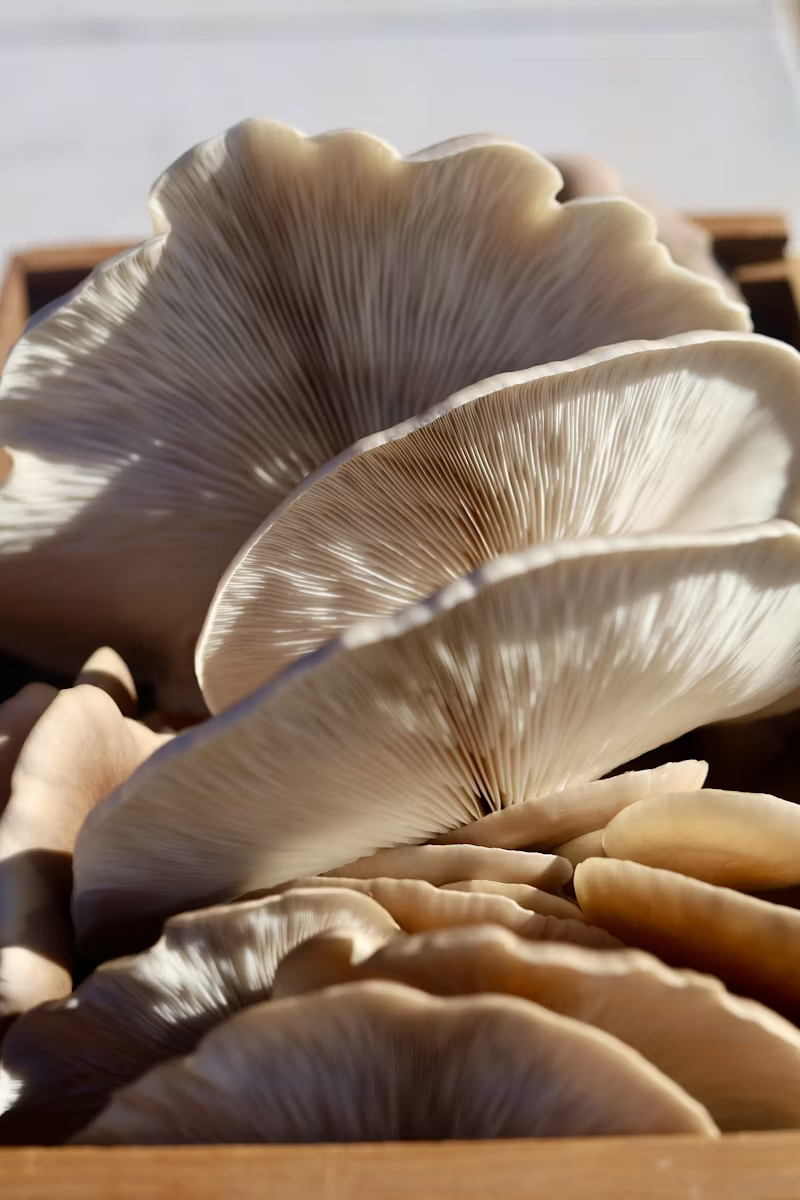Oyster Mushrooms: Nature's Health Powerhouse
Oyster mushrooms are a delicious and versatile edible fungus that offer numerous health benefits. These fan-shaped mushrooms have been prized for centuries in various cuisines around the world. Oyster mushrooms are packed with nutrients and bioactive compounds that may support heart health, boost immune function, and help regulate blood sugar levels.

Oyster mushrooms are a delicious and versatile edible fungus that offer numerous health benefits. These fan-shaped mushrooms have been prized for centuries in various cuisines around the world. Oyster mushrooms are packed with nutrients and bioactive compounds that may support heart health, boost immune function, and help regulate blood sugar levels.
These fungi are low in calories yet high in protein, fiber, and essential vitamins and minerals. Oyster mushrooms contain antioxidants that help protect cells from damage caused by free radicals. They also provide beta-glucans, which are compounds known for their potential to lower cholesterol and improve overall cardiovascular health.
Research suggests that oyster mushrooms may have anti-inflammatory properties and could potentially aid in cancer prevention. Their unique nutrient profile and medicinal properties make them a valuable addition to a balanced diet. Whether sautéed, grilled, or added to soups and stir-fries, oyster mushrooms offer a range of culinary possibilities while providing impressive nutritional benefits.
Nutritional Profile and Health Advantages
Oyster mushrooms pack an impressive nutritional punch while offering numerous health benefits. They are low in calories yet rich in essential nutrients, making them an excellent addition to a balanced diet.
Essential Nutrients and Vitamins
Oyster mushrooms are nutrient-dense, containing a variety of vitamins and minerals. A 100-gram serving provides only 33 calories, making them an ideal choice for weight management.
These mushrooms are an excellent source of:
- Protein: 3 grams per 100g serving
- Fiber: 2.3 grams per 100g serving
- Niacin: 31% of the Daily Value (DV)
- Riboflavin: 22% of the DV
- Pantothenic acid: 11% of the DV
- Phosphorus: 8% of the DV
- Iron: 6% of the DV
- Zinc: 6% of the DV
Oyster mushrooms also contain smaller amounts of vitamin D, vitamin B6, and folate. They are low in fat and carbohydrates, making them suitable for various dietary needs.
Benefits for Overall Health
The unique nutritional profile of oyster mushrooms contributes to several health advantages. Their high fiber content supports digestive health and helps maintain stable blood sugar levels.
Oyster mushrooms contain beta-glucans, which have immunomodulating properties. These compounds may enhance the immune system's function, potentially improving overall health and resistance to infections.
The antioxidants in oyster mushrooms, including ergothioneine, help combat free radicals in the body. This may reduce oxidative stress and inflammation, supporting heart health and potentially lowering the risk of chronic diseases.
Research suggests that oyster mushrooms may have anti-inflammatory and cholesterol-lowering effects. These properties could contribute to improved cardiovascular health and reduced risk of heart disease.
Culinary Uses and Preparations
Oyster mushrooms are versatile ingredients that enhance various dishes with their delicate flavor and meaty texture. They can be easily incorporated into many cuisines and prepared using different cooking techniques.
Incorporation in Diverse Diets
Oyster mushrooms are popular in many culinary traditions. Their mild, slightly sweet flavor complements a wide range of dishes. In Asian cuisines, they're often used in stir-fries and soups. Western chefs incorporate them into pasta dishes, risottos, and sauces.
These mushrooms are prized for their umami flavor, making them an excellent meat substitute for vegetarian and vegan diets. They can be used to create plant-based versions of seafood dishes due to their texture.
Oyster mushrooms work well in both hot and cold preparations. They can be added to salads, sandwiches, and even used as a topping for pizzas.
Selection and Cooking Techniques
When selecting oyster mushrooms, look for firm, fresh specimens with a clean smell. Avoid those with slimy or discolored patches. King oyster mushrooms have thick stems that can be sliced and used like scallops.
To prepare, gently clean the mushrooms with a damp cloth. Trim off any tough stem portions. Oyster mushrooms can be:
- Sautéed: Cook in a hot pan with oil or butter until golden brown.
- Grilled: Brush with oil and grill for 2-3 minutes per side.
- Roasted: Toss with oil and herbs, then roast at 400°F (200°C) for 15-20 minutes.
- Added to soups and stews: Slice and add during the last few minutes of cooking.
Their delicate flavor pairs well with garlic, herbs, and light sauces. Avoid overwhelming them with heavy seasonings or long cooking times.
Want more posts like this?Sign up for our FREE newsletter →